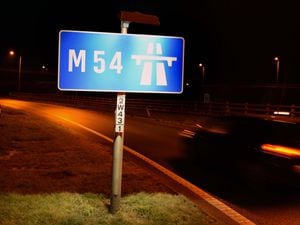Campaign to tackle modern slavery in West Midlands
A modern slavery awareness campaign has been launched in the West Midlands to help front-line workers recognise the signs.

In 2018, West Midlands Police reported 117 cases of modern slavery. The number of potential victims of modern slavery in the UK has increased year on year, with nearly 7,000 cases identified and referred to the National Referral Mechanism in 2018 – a 36 per cent increase on 2017.
As a result, the Prime Minister made modern slavery a priority, setting up a dedicated Modern Slavery Taskforce to help reach the UN global goal of eradicating modern slavery by 2030. And now the government has launched an advertising campaign in Birmingham to raise awareness of the signs. The campaign will help front-line workers in healthcare, financial services and employment offices to spot the signs of human trafficking and will consist advertising and social media.
Employees in these sectors are most likely to come into frequent contact with potential victims. It is intended that this campaign will help workers to learn the signs of modern slavery and report potential victims to the modern slavery helpline.
Common signs of modern slavery could include people being forced to pay cash wages into someone else’s bank account, multiple medical prescriptions from the same address or someone being accompanied to and from an appointment by someone who is obviously not a relative.
Based on intelligence from the police and the Gangmasters and Labour Abuse Authority (GLAA), it has chosen to run this campaign in areas where it is likely to have an impact - including Birmingham.
Minister for Crime, Safeguarding and Vulnerability Victoria Atkins said: “Ending the scourge of modern slavery is a priority of this Government. We all have a role to play in tacking this appalling crime.
“It is vitally important to give front-line workers, who come into contact with potential victims of trafficking and modern slavery the tools they need to spot the signs of abuse and the confidence to report any exploitation they see.”
GLAA Chief Executive, Michael Rich, said: “Front-line workers within these industries are in a perfect position to spot service users who may be experiencing exploitation.
“Modern slavery hides in plain sight and this campaign is vitally important in educating those workers about what signs to be alert to, what they can do to help, and who to contact if they have concerns. They are our eyes and ears and the information they provide could be crucial – it could end suffering and even save lives.”





